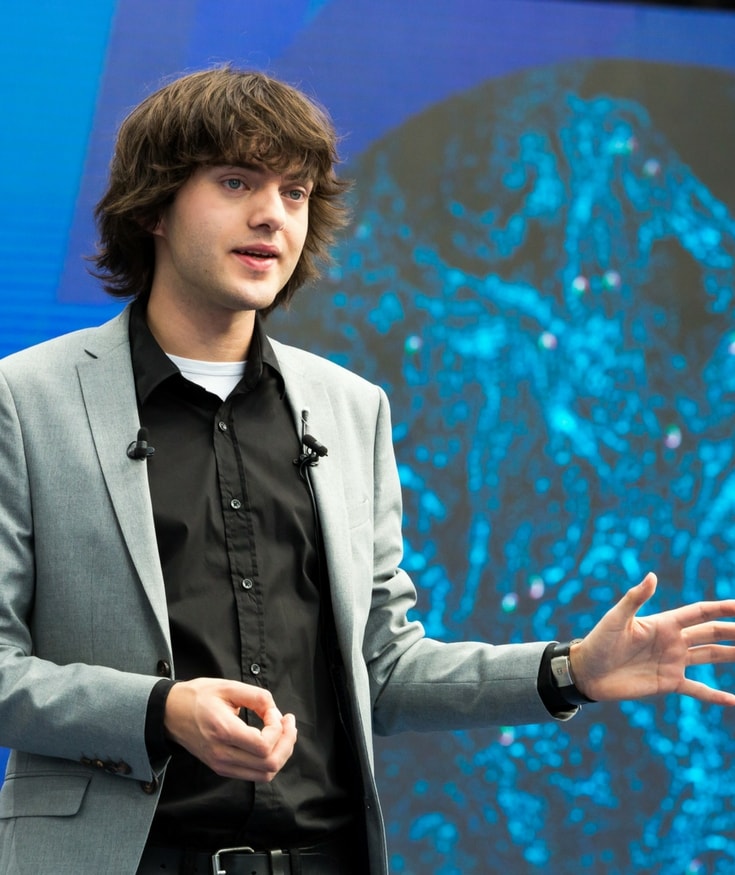The Inspirationals: Boyan Slat, CEO of The Ocean Cleanup
Around the world, more and more people are working in exciting, smart and collaborative ways to help solve our most critical environmental issues. In the first of an ongoing series, BuyMeOnce celebrates the groundbreaking work of Boyan Slat and The Ocean Cleanup.
Madeleine Burbidge

Plastic pollution, in particular, that which bobs in our oceans and is strewn along coastlines the world-over, has been a long-standing bugbear of mine. I’m fortunate to have enjoyed quite a few beaches over the years, but pretty much every one of them has been blighted by a considerable amount of non-biodegradable detritus. Like me, you may have noticed that it’s only getting worse. Last year, for instance, I got tangled up on a swim in about ten metres of black, eel-like plastic tape, while on another day I discovered thousands of tiny jellyfish-like bits of cling-film along a shoreline. And it’s become a bit of an obsession of mine to collect litter – crates, plastic bottles, straws, plastic string and so on – when and where I can. But as the BBC Blue Planet II so graphically revealed late last year, trash in our oceans is so much worse than an aesthetic problem: wildlife is suffering immeasurably. From whales beaching after swallowing four kilos of plastic bags to 90% of seabirds feasting on plastic bottle tops and broken down plastic micro-particles, we are in the midst of an unprecedented man-made crisis that only us humans can solve.
So it was with great relief (and excitement) that I heard about Boyan Slat. Slat’s eureka moment came when he was just 16-years-old, while scuba diving in Greece. He was surprised to see more plastic bags than fish under the sea.

Like me, he could have felt rather annoyed about humankind’s irresponsibility, grabbed some of those bags, binned them, headed home and forgotten about it until the next beach visit. But Slat didn’t forget. He thought big, really big.
This year, just seven years after that swim, Slat and his Netherlands-based foundation The Ocean Cleanup will begin tackling the ginormous garbage patch in the Pacific Ocean, which stretches from Hawaii to California. And they will do it with what Time Magazine has called, “one of the world’s best inventions”.

Instead of physically picking up the estimated the five trillion pieces of trash in our oceans (clearly an impossible task), Slat had the insight that the oceans currents could be used to catch floating trash. With a team of scientists and experts and lots of testing and retesting of prototypes, Slat and The Ocean Cleanup went on to develop an autonomous, energy neutral, drifting, curved barrier system, which is around 62 miles long. The Ocean Cleanup believes the barrier system should withstand Pacific storms and collect plastic as tiny as 1 cm and as large as ‘ghost nets’, the discarded fishing nets tens of metres in size, which have been called the “greatest killers in our oceans”. The Ocean Cleanup’s main goal though is to collect plastic while it is still large before the salt and turbulence of the oceans degrade it into the dangerous micro-plastics that are now part of the food chain.
Modelling and feasibility studies by the Ocean Cleanup indicate that a full rollout of their systems could clear the Pacific Garbage Patch by as much as 50% in five years. The Ocean Cleanup will also recycle and sell the plastic they collect, the aim being to use those funds to expand the project to other oceans.
Despite raising more than $30 million so far, Slat and the Ocean Cleanup have had their fair share of naysayers and zero-sum criticisms, but as Slat said in a recent article in The Telegraph, “it’s important to at least try”. And goodness, how he’s trying!

As for me, I’m going to keep picking up litter when I’m lucky enough to be on a beach. Maybe I’ll join a beach cleanup group too. And I’ll do it with a bit of a spring in my step, in the knowledge that maybe one day, thanks to people like Boyan, I’ll come across a beach and an ocean as pristine as it was before plastic.
Want to get involved? There are charities and organisations around the world doing their bit to tackle plastic pollution. Here are just a few to start you on your cleanup journey:



